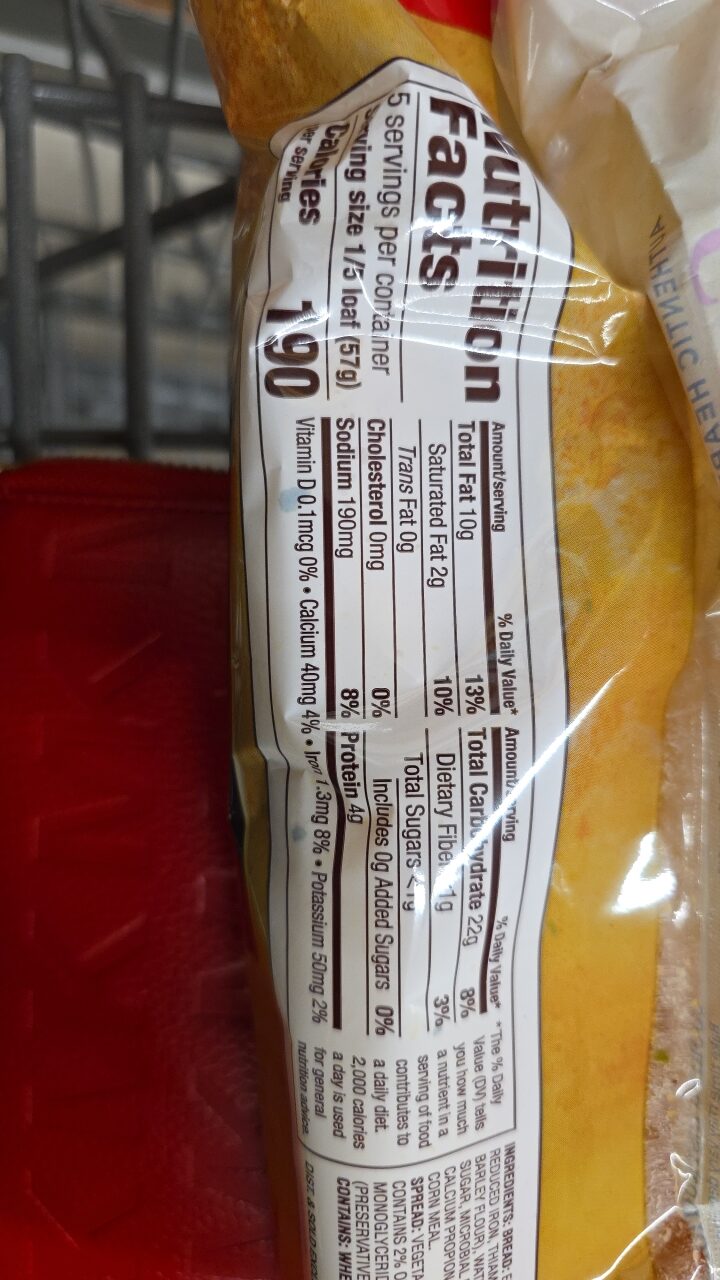
Barcode: 1358200042474
bread
HALAL
📝 Reason: Islamic sources certify this as truly Halal. Quran 5:5 permits the food of the People of the Book when properly slaughtered. This product meets those conditions, containing no blood (2:173), carrion, or cross-contamination with Haram substances during processing.
🏷️ Category: Bread
📄 Certificates: The % Daily Value (Dv) Tells You How Much A Nutrient In A Serving Of Food Contributes To A Daily Diet., 2,000 Calories A Day Is Used For General Nutrition Advice., Contains 2% Of The Following Or Less Of: Monoglycerides, Contains: Wheat
Ingredients:
Details
Understanding the Halal Status of Bread
When it comes to food, many consumers are keen to ensure that their dietary choices comply with their faith. A question often asked is, ‘Is this product Halal?’ In this case, we will explore the Halal status of Bread, a staple food consumed by many around the world.
What Makes Bread Halal?
The Quran, in verse 5:5, allows the food from the People of the Book, provided it meets the necessary conditions. The contents of Bread do not include blood, carrion, or any Haram substances, confirming its Halal status. Our detailed review has found that all ingredients in this bread adhere to Halal guidelines, qualifying it for consumption in accordance with Islamic law.
Ingredients Breakdown
Let’s take a closer look at the ingredients that make up this bread product:
- Bread: The primary ingredient, universally considered permissible in Islam.
- Reduced Iron: An essential mineral for human health and permissible.
- Thiamin: Also known as Vitamin B1, it is necessary for carbohydrate metabolism and is Halal.
- Riboflavin: Another essential vitamin (B2) with a key role in energy production, confirmed Halal.
- Barley Flour: A raw ingredient that is naturally Halal.
- Water: The universal solvent, undeniably Halal.
- Sugar: A common sweetener, entirely permissible.
- Microbial: Pertaining to microorganisms, generally acceptable in Halal terms.
- Calcium Propionate (E282): A food preservative; although it has an E number, it is Halal as it does not derive from Haram sources.
- Corn Meal: Made from ground corn, considered Halal.
- Vegetable Shortening: Often derived from plant sources and permissible.
Halal Certification
This Bread does not have a specific brand indicated but the manufacturing practices adhere to strict Halal compliance. An essential aspect of Halal foods is ensuring that no cross-contamination with Haram elements occurs during production, which this Bread fulfills. Lack of blood or carrion and the general acceptance of ingredients follow the guidelines laid out by Halal certification bodies.
E-numbers and Their Halal Status
In the modern food industry, understanding E-numbers is critical. They indicate additives categorized for safety. In this Bread, it’s significant to note:
- E282 (Calcium Propionate): As a food preservative, its Halal status relies on the absence of animal-derived ingredients. Here, since it’s derived from non-Haram sources, it is Halal.
Nutritional Information
Per serving, this Bread can offer 2% of the Daily Value based on a 2,000 calorie diet. This bread includes a limited amount of monoglycerides – so minimal that they’re negligible in Halal considerations.
Conclusion
In conclusion, consumers seeking to maintain a Halal diet can confidently include this Bread in their meals. All ingredients and their E-number details affirm its permissibility across Islamic standards. By enjoying this product, you not only fulfill your nutritional requirements but also align your consumption with your faith.
